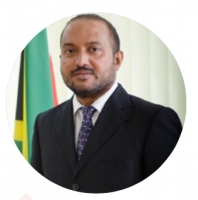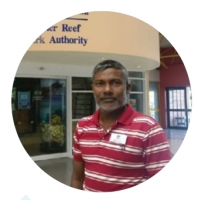Starting to manage the waste will be the solution, many marine vessels use plastic bottles that end up in the ocean. Every day Thilafushi island is burning toxic chemicals. So, it is we who has got to manage the waste we produce.
We can try to promote eco-friendly ways, simple things like promoting water filters and the use of glass bottles to store water. Now there are water filters which produce water from the atmosphere, and to face off single use plastic. We can also ban single use plastic like bags and straws. In some islands, they have already banned plastic bags. And to be honest, Maldives is polluted at a level that it has never been before. Together we have to work for climate justice in the Maldives.





